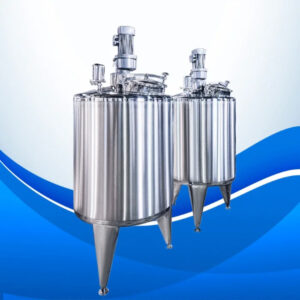
Apple cider vinegar (ACV) has earned a powerful reputation in the world of natural health and wellness. Traditionally consumed in its liquid form, ACV has been linked to various benefits such as weight loss, blood sugar control, improved digestion, and even clearer skin. However, the strong taste and acidic nature of the liquid form can be off-putting for many people. That’s where ACV tablets come in — offering a more convenient and palatable way to enjoy the same health benefits.
But the big question remains: Are ACV tablets as effective as the liquid form? In this comprehensive guide, we will explore the differences between the two, analyze their effectiveness, and provide guidance on how to choose and use them wisely.
What is Apple Cider Vinegar?
Apple cider vinegar is made from fermented apple juice. The process involves two steps:
- Alcohol Fermentation: Crushed apples are exposed to yeast, which converts the sugars into alcohol.
- Acetic Acid Fermentation: Bacteria are added to the alcohol, turning it into acetic acid, the main active compound in vinegar.
The final product is rich in:
- Acetic acid
- Enzymes
- Probiotics (in raw, unfiltered versions with “the mother”)
- Trace minerals like potassium and magnesium
These components contribute to ACV’s wide range of reported health benefits.
What Are Apple Cider Vinegar Tablets?
Apple cider vinegar tablets are dietary supplements that contain dehydrated and powdered forms of ACV Tablets. These tablets are often marketed as an alternative for people who dislike the taste or acidity of the liquid. Some tablets also include additional ingredients such as cayenne pepper, ginger, chromium, or B-vitamins to enhance specific health outcomes like metabolism or energy levels.
ACV tablets are convenient, portable, and less abrasive on tooth enamel, making them increasingly popular among health-conscious consumers.
Key Differences Between ACV Liquid and Tablets
| Feature | ACV Liquid | ACV Tablets |
| Taste | Strong, sour, acidic | Tasteless or mild |
| Convenience | Needs dilution; not travel-friendly | Easy to carry and consume |
| Dosage Control | Easy to measure | Fixed doses |
| Acidity | High; may erode enamel or irritate throat | Neutralized form |
| Presence of “Mother” | Often included in raw, organic ACV | Rarely included |
| Additives | Usually pure | May contain fillers or added ingredients |
Benefits of Apple Cider Vinegar (Both Forms)
Whether in liquid or tablet form, ACV may offer the following health benefits:
Weight Loss and Appetite Control
Studies suggest that acetic acid helps suppress appetite, increase metabolism, and reduce fat storage. ACV can make you feel fuller for longer, especially when consumed before meals.
Improved Blood Sugar Levels
ACV has been shown to improve insulin sensitivity and reduce blood sugar spikes after meals, which is especially beneficial for people with type 2 diabetes or insulin resistance.
Digestive Support
Raw ACV contains enzymes and probiotics that aid digestion and improve gut health. Tablets may or may not provide this benefit depending on processing.
Cholesterol and Heart Health
Some evidence suggests that ACV helps lower LDL (bad) cholesterol and triglycerides while increasing HDL (good) cholesterol, potentially reducing heart disease risk.
Antimicrobial Properties
ACV has natural antibacterial and antifungal properties, which may help combat infections and improve oral hygiene.
Effectiveness: Do Tablets Work as Well as Liquid?
Now let’s dive into the main question: Are apple cider vinegar tablets as effective as the liquid form?
Yes But It Depends on the Brand and Formulation
The effectiveness of ACV tablets largely depends on:
- The acetic acid content per tablet
- Whether the tablets include the “mother” or not
- The manufacturing process, which can degrade or destroy beneficial compounds
- Presence of fillers, binders, or synthetic additives
A high-quality ACV tablet with at least 500–600 mg of acetic acid and minimal additives can provide comparable benefits to 1–2 tablespoons of liquid ACV.
No If Low Quality or Improperly Formulated
Some ACV tablets are misleadingly labeled and contain very little actual apple cider vinegar. Others may lack bioactive compounds like enzymes or beneficial bacteria, especially if they do not include the “mother.”
A 2005 study published in the Journal of the American Dietetic Association tested various ACV tablets and found discrepancies between the label claims and the actual acetic acid content, with some tablets containing dangerously high or low amounts.
When Are Tablets a Better Choice?
While liquid ACV may be more “authentic,” tablets may be preferable in the following situations:
Sensitive Teeth or Gums
The acidity of liquid ACV can erode enamel and irritate your gums or throat. Tablets avoid this issue completely.
On-the-Go Lifestyles
You can carry tablets in your bag or pocket — no measuring, diluting, or messy spills.
Taste Aversion
If you dislike the pungent smell or sharp taste of liquid ACV, tablets are a palatable alternative.
Stomach Sensitivity
The acidity of liquid vinegar may cause nausea or upset stomach in some people. Tablets tend to be easier on the digestive system.
When Is Liquid a Better Choice?
Despite the convenience of tablets, liquid ACV has some advantages:
Presence of the “Mother”
Raw, unfiltered apple cider vinegar contains the “mother” — strands of proteins, enzymes, and probiotics — believed to offer additional health benefits. Tablets rarely include this.
Fewer Additives
Pure ACV liquid usually contains just fermented apples and water, while tablets may include binders, preservatives, or flavoring agents.
Versatility
Liquid ACV can be used in salad dressings, marinades, detox drinks, and hair or skincare routines.
How to Choose a High-Quality ACV Tablet
If you decide to opt for tablets, keep the following points in mind:
- Check the Label: Look for products that clearly state the amount of acetic acid per serving.
- Look for Minimal Additives: Choose tablets without artificial sweeteners, colors, or preservatives.
- Choose a Trusted Brand: Research the manufacturer’s reputation and look for third-party testing or certifications.
- Prefer Tablets With the “Mother”: Though rare, some brands now offer encapsulated or freeze-dried forms of the mother.
Recommended Dosage
While there’s no universal dosage, the following is a general guideline:
- Liquid ACV: 1–2 tablespoons (15–30 ml), diluted in a glass of water, once or twice daily.
- Tablets: Follow the label instructions, which typically recommend 1–2 tablets (equivalent to 500–1000 mg ACV) before meals.
⚠️ Always consult your doctor if you have preexisting conditions, take medications, or are pregnant or breastfeeding.
Possible Side Effects
For Liquid ACV:
- Tooth enamel erosion
- Throat irritation
- Stomach upset
- Potential interaction with diuretics or insulin medications
For ACV Tablets:
- Digestive discomfort (if taken on an empty stomach)
- Risk of choking (if tablets are large)
- Inconsistent dosage or contamination (in poorly regulated brands)
Conclusion: Liquid vs Tablets
Choose ACV Tablets if:
- You can’t stand the taste or smell of vinegar
- You want a portable, mess-free option
- You have dental concerns or sensitive stomach
Choose Liquid ACV if:
- You want the raw, unfiltered form with the “mother”
- You plan to use it topically or in recipes
- You value fewer ingredients and no processing
Ultimately, both forms can be effective if you select a high-quality product and use it consistently. Whether you go with the traditional liquid or modern tablet form, apple cider vinegar remains a powerful tool in your wellness routine — just make sure you’re choosing what works best for your body and lifestyle.
FAQs
1. Can I take ACV tablets on an empty stomach?
Yes, but some people experience mild nausea. Start with food to assess tolerance.
2. Are there any side effects of ACV tablets?
Minimal in most cases, but poor-quality tablets may cause digestive upset or be ineffective.
3. Can I switch between liquid and tablet forms?
Absolutely! You can alternate based on convenience or your daily routine.



